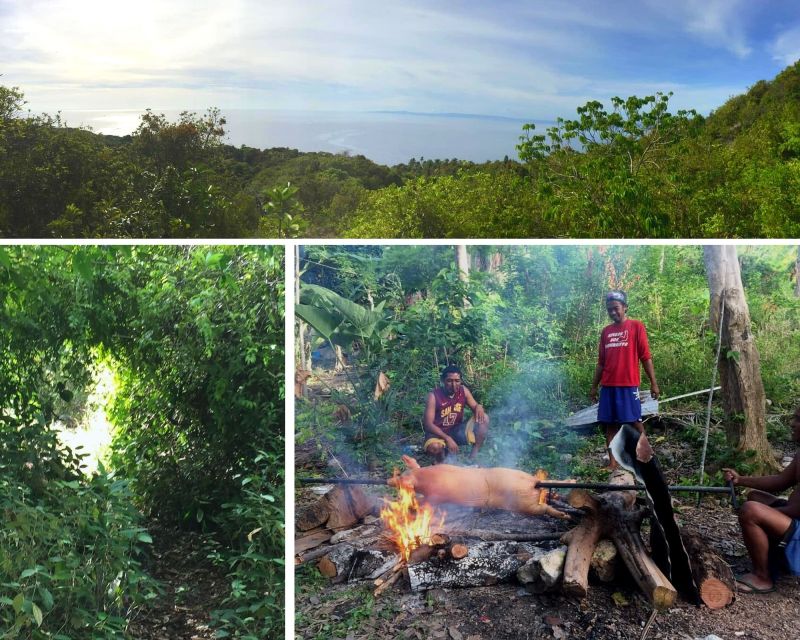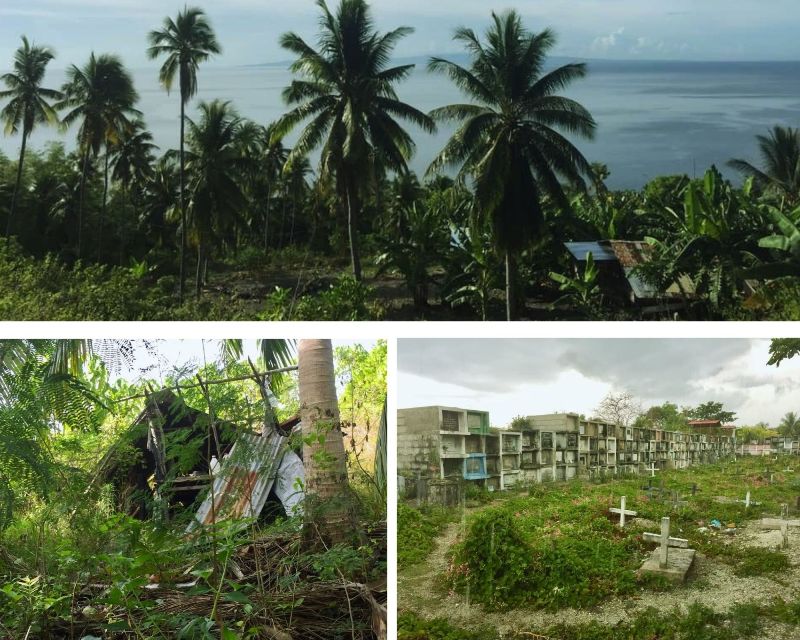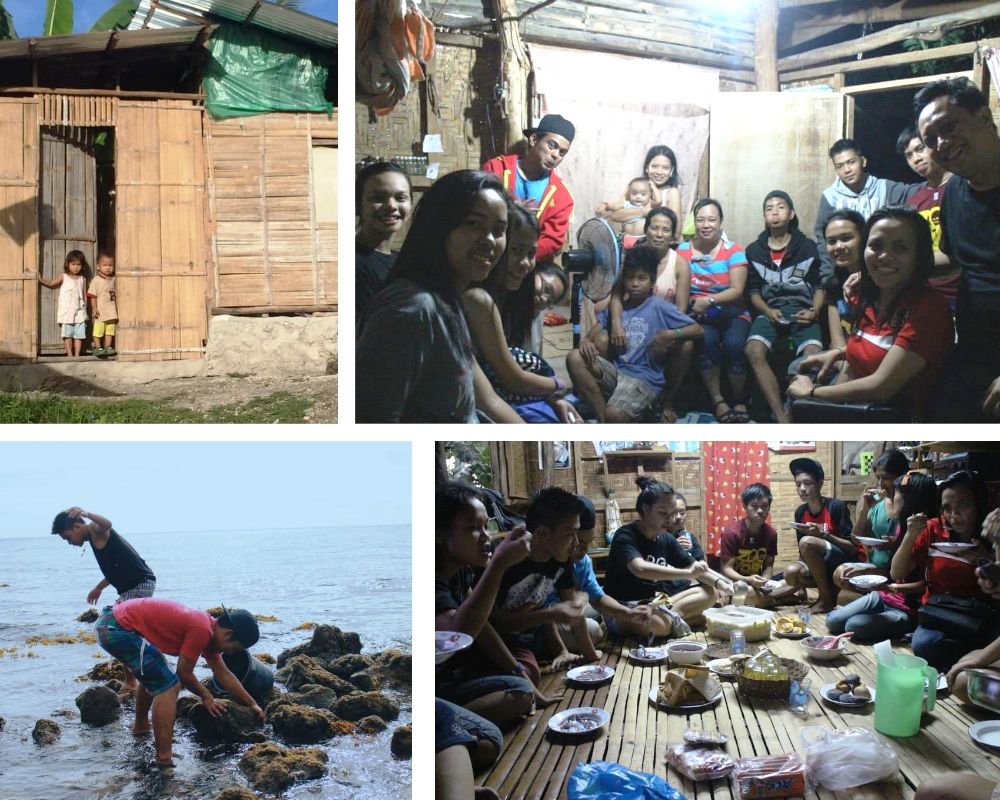GRATITUDE FROM THE ROUGH GROUNDS
I would like to thank all of you who greeted me on my FB wall or messenger or texts. There is no time today to reply to all of you individually. Maybe in some future time. We are still in the middle of our Provincial Assembly. This is in fact a working birthday. But let me just express my gratitude from the bottom of my heart through this article.
I slept late last night and woke up early. I just watched the moon being covered with clouds and later listened to the falling rain, as I revisited the past years of my life. I just felt I do not deserve all your care and concern. This evokes feelings of deep unworthiness and loving gratitude to all of you whom I have met along my journey; and to the God who made our meeting possible.

Someone asked me yesterday—during my birthday—why I have travelled the path I have trod. Maybe she was asking how to understand what I have written, or what I am doing and why I have pursued them. Quite a difficult question to answer. But it is worth trying. It will help me too to take stock of my last 60 years and express my gratitude for those moments. I was also able to silently thank the people who have formed me into who I am until today.
LOCATION
“Ang hindi marunong lumingon sa kanyang pinanggalingan ay hindi makarating sa paroroonan.” My social location is the first thing I am grateful about. It sensitizes me to the living faith and aspirations of well-being among peoples in the margins. In short, it is the simple people whom I grew up with who taught me about life, struggle and faith. They brought me to their little farms and led me to appreciate how the corns grow from seeds to seedlings, from leaf to tassel, from ear to grain. In these constant and regular visits, it is they who imparted to me the necessary patience we all need as we wait for harvest. They brought me to the sea with them, instructed me how to swim, how to catch fish – and how to struggle with one’s body on water in order to counter the strong currents or to let go and float in order not to tire oneself so much and survive. They trained me how to dive for the fish but also to wait until one eats the bait.
This alternate seasons of struggling and letting go, of working and waiting, of passionate activity and patient contemplation mark their entire days. Before sundown, after a hard day’s labor, they all gather together in my mother’s small sari-sari store to tell stories, to share a glass of tuba or just to relax as we children play tubig-tubig, hide-and-seek and other local games. It was not yet the time for Dota, ML and Tiktok. In hindsight, I realize that these significant moments of ‘being’ form part of our ‘doing’; just as our ‘doing’ is considered to be the source of our ‘being’. Praxis, theoria and back!

SPIRITUALITY
This pattern that marks their lives also serves as a matrix of their relationship with their God. They brought me to their prayer moments in the evening rosaries or praying for the dead during wakes. It is the same pattern that I saw. People struggle to utter the Hail Mary’s despite sleepiness and fatigue but they also burst into lively song and celebration, especially when the time to conclude it has come and the snacks of camote and tuba is ready to be served. Life on the rough ground is a mixture of everything—activism and contemplation, praxis and theory, prayer and action, rest and celebration—one in all, all in one. No preference, no precedence, no higher criterion.
And these people were, for me, the first theologians. I didn’t learn spirituality in catechisms and books. I learned it from the simple faith of these people. Beyond the theology books I have read or written, it is still the source of my faith today.
MARGINALIZATION
I grew up in a small village Hagdan, Oslob, Cebu – a place quite far and remote to which there was only one bus that plied the rough roads from the city each day. Access to economic, academic or cultural opportunities were also remote, so much so that many of my playmates did not even finish high school and merely ended as subsistence farmers or fishermen the whole of their lives. We are not only found in the geographic margins. We were also marginalized by a lot of other social forces both local and national—from the scorn city people have on our accent to their condescending looks at our rural ways, from political warlords to economic monopolies—all these contributing to our marginalized habitus.
When I was given the opportunity to study philosophy and theology, it was these people—all of them, my family, relatives, cousins and friends—who were foremost in my mind. When I later worked in parish community organizing, the more their voices became clearer and the cries louder; this time in another location. I was confronted with this abject poverty right before my eyes, right within my family, neighbors and mission areas.
Immersion programs were not new to me. I was already immersed in poverty since birth. What was new was the post-immersion realization. It sharpened my consciousness of poverty and its causes, of its visible effects and embodied consequences. It led me to ask the question why. This social location led me to Marxism and its allied disciplines in philosophy and sociology. Despite studying Thomism for years, the first philosopher that made sense to me was Marx and his companions. They helped me understand the complexity of our impoverished situation. In short, I entered the world of theology from the lens of critical theory.
MASSES?
But the Marxism I have learned was scrutinized by the lens of my location's lived experience. I once heard my esteemed professor say—and this sentence did not leave my mind—“Only the conscientized masses are capable of praxis.” I started wondering, who are the “masses”; what does it mean to be “conscientized”; and what consists “praxis”.
Later I found out that to be conscientized meant belonging to one or other revolutionary party or social movement, and to do praxis is to help advance the cause of the proletariat. The terms were becoming more difficult. It also meant analyzing situations through dialectical materialism, capitalism, socialism, and so on and so forth. In concrete, it actually meant that in order to be a committed Christian, you should be a NatDem, a SocDem, a Maoist or Leninist, etc. Hearing all these, I was lost at best, and marginalized at worst – because I was not an affiliate to either one or the other. I had the same aspirations for freedom and liberation but I did not speak their language nor did I belong.
But that was not my main concern. My concern was about my friends. I have always been thinking of my neighbors. Were they the “masses”? Were they “conscientized”? Are their labors, struggles and lives considered “praxis”? The poor masses still needed to be formed and conscientized? Many of them could not even read and write much less know "diamat". But they have resisted years of colonial oppression and negotiated with landlords and warlords of all kinds.
This condescending attitude against the people is common to upper and middle classes—both from the academe and religious life—who decide to work “for the people”. Thus, even as these self-styled radicals dedicate their lives to the people, they will never be like the “masses” they have described. Their tendency to look down on them are ingrained in their middle-class habitus. The masses will always be beyond them, outside them—sometimes denigrated, sometimes romanticized, but always classified.
In truth, “there are in fact no masses,” Raymond Williams says. My cousins and friends were not "masses". They have names and I know them. I call them by their names. They will never me "masses" to me. "Masses" in fact are “other people” whom we do not know, who do not speak like us, who are far from our own circles of intimate signification. Calling them “masses” can be our way of classifying them.

Did my neighbors mind? It did not really matter to them at all. It was the least of their preoccupations. But my inner sensibilities were rebelling at this utmost marginalization. The poor have always been marginalized not only in economic, political, socio-cultural and religious universes but also in the way dominant society views, values, and talks about them and their lives.
BACK TO THE ROUGH GROUNDS
My job as teacher forces me to grapple with, learn and speak another language—that of the academe. There is no other way, if I want to teach.
But when I talk to the people of my neighborhood or to communities like them, I shift to a different language altogether— to a language which we all understand from childhood—the stories and the prayer, the jokes and the banter, the singing and dancing, the eating and drinking. Even as I am sometimes obliged to say something, what I say are those things that I have learned from them. In fact, in front of them, the theologian in me, can only bow down in silence as I contemplate on the hope that I feel amidst this people who have taught me about life, about struggles, about God.
Max Warren’s metaphor which I paraphrased below always serves as a good reminder of reflexivity. In their midst, I need to “take off my shoes, for the place I am approaching is holy. Else I may find myself treading on people’s dreams. More serious still, I may forget that God was here before I arrived.”
Daniel Franklin E. Pilario, CM
St. Vincent School of Theology
Adamson University
danielfranklinpilario@yahoo.com
07.22.2021
For a longer article (as if this is not long enough hehehe), click this link:
https://www.svst.edu.ph/.../theology-at-the-rough-grounds...


